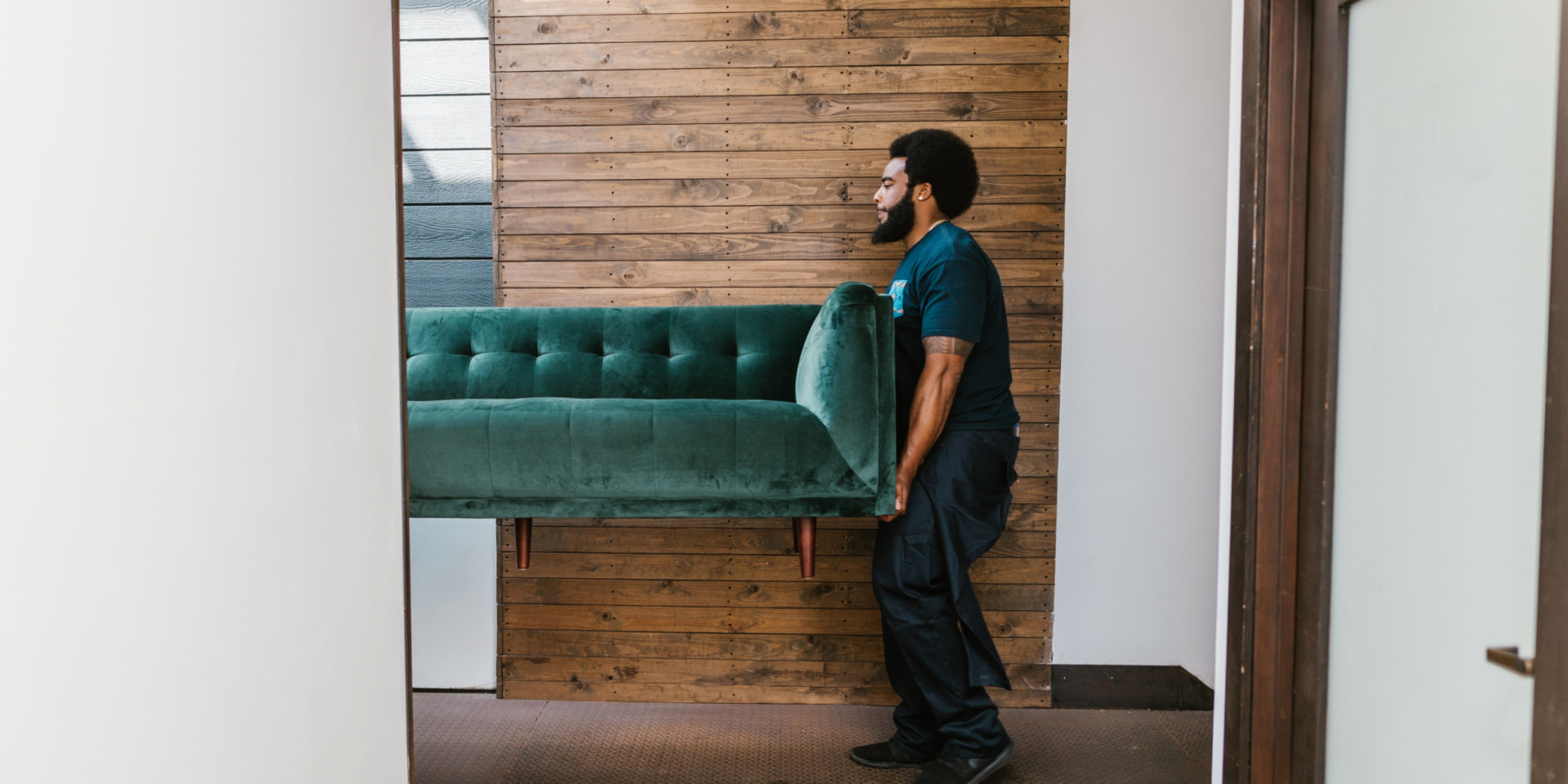The 6 Most Important Things To Know Before Signing Your First Lease

Signing your first lease is equal parts exciting and nerve-wracking. We love it when we get to help first-time renters find their dream apartments because while it’s a super special time, it can also be overwhelming with tons of information, jargon, and big decisions coming at you from every direction. To mitigate some of the guesswork for our clients, we went ahead and outlined everything a renter needs to know before signing their first lease! If this is you, or will be you in the coming months, bookmark this baby because it covers it all. We also bolded some of the main ideas for all our “skimmers” out there.
One quick note before we get started — make sure you have an organization system where everything can live in one place prior to starting your apartment journey. Having a folder or designated virtual storage place comes in handy when you need to reference anything pertaining to your apartment, renter’s insurance, or lease.
1 | Let’s define “lease”
A lease is a legally binding contract. Signing an apartment lease makes you legally responsible for everything covered within that lease, so the first thing you should plan to do is to read every word. It’s lengthy, but the fine print goes over important stuff you don’t want to overlook. Make sure you know all of the expectations — things like when and where the rent should be paid, late fees, and what can and cannot be altered in the unit. This goes for renting with a roomie, as well — all tenant signatures on the lease are equally subject to any legal ramifications if the contract isn’t fully upheld. Leasing agents at the property you’re leasing with can help answer any questions you might have about your agreement. Take time to ask them any questions you might have about the language used in the lease or their processes!
Pro tip: bring a highlighter and sticky notes when you go over your lease agreement so you can outline things you’re concerned about, don’t understand, or want to gain clarity around.

2 | Affording the rent
The rule of thumb and the way properties will calculate if your rent-to-income ratio is appropriate is that your monthly income is at least 3 times your monthly rent. For example, if you’re signing a lease at an apartment that rents at $1,400/mo, your gross monthly income needs to be at least $4,200 to get approved. Properties require this to assume the least amount of risk possible when taking on tenants — by using this equation, they’re ensuring you’re likely to have the funds to pay rent each month.
If you don’t make three times the monthly rent, don’t worry! That doesn’t mean you’re automatically denied, it just means the property might reach back out with a few options that can help you get approved for the unit. They could require a higher initial deposit, request more banking information, or suggest leveraging a co-signer on your lease. If this is your first-ever lease agreement, these things are very normal — and if you’re working with an Apartment Locator, they will serve as a great resource should you have any questions about what those things should entail!
3 | You might need a co-signer if…
As we mentioned above, before approving you for a specific unit, apartment properties want to have a good idea of the type of risk they’re taking by making you a tenant. Properties typically understand that first-time renters might not have extensive rental and credit history, so they’ll meet them halfway by requiring a co-signer on the lease. What that means is you’d basically have a “backer” to your lease agreement, should anything happen that you can’t make a rent payment or you don’t adhere to the full requirements of the lease. A lease co-signer would be someone who has a more extensive rental and credit history and has a monthly income that’s 5 times the monthly rent. Your co-signer will typically be required to fill out and submit the same application you as the tenant have to submit prior to being approved.
Something that’s extremely important to remember, especially if you’re renting with a roommate, is that lease co-signers hold just as much legal responsibility as the lease tenants! So, if your roommate has a pet that tears up the apartment and the co-signer is someone you know, if your roommate doesn’t take full responsibility for what comes of that, it will fall on you and the co-signer whether it was your pet or not.
4 | Consider proximity & seasonality
Proximity (read: location) matters! Before choosing an apartment, consider the places you frequent and where they are in relation to your prospective new property. It never hurts to put together a mock commuting budget to anticipate costs outside of utilities and rent. You might also find that moving a little further away from the places you frequent saves you money on rent, which makes more room for commuting costs. A general assumption our clients make before they’re matched with one of our agents is that they’ll just live near everything they’re around the most. Sometimes this makes for the perfect living location and sometimes you’ve got the crunch the numbers or get a little more creative to make it all mesh the way you need it to.
Now that we’ve covered the importance of proximity, let’s chat about seasonality and the flow of the apartment market. The first fact you should know is that pricing changes daily (yes, daily). Apartment pricing is based on supply and demand, so as people move to and from certain neighborhoods or move in general waves (what we refer to as seasonality), pricing will reflect that. Spring and summer are peak moving seasons, which means supply is lower and demand is higher. And, if we remember from good ‘ol high school economics, that’s when prices increase. So, if you can set it up where you’re looking to move during fall and winter when supply is higher and demand is lower, you’ll face overall better pricing within the apartment market.
You’ll also see that when demand is lower and properties are looking to keep their occupancy as high as possible, move-in specials can sometimes bring your effective monthly rent down to exactly where you need it to be! So, while we can’t predict exact pricing, we do know that seasonality can be a game-changer.

5 | Renter’s insurance & utilities
The goal of this section is to have a strong grasp of all monetary commitments that will take place alongside paying rent. Apartment tenants are required to provide proof of renter’s insurance upon move-in. The reason properties ask their tenants to maintain renter’s insurance throughout their lease term is that the insurance on the property only covers structural damage, not damage to your personal items should anything happen. There are lots of options out there when it comes to renter’s insurance, but most of them are fairly inexpensive to have (generally less than your fave streaming service.) We recommend Lemonade to our clients because of how affordable and easy to use it is — we’ve seen it get as low as $5/mo!
Other things to account for are monthly costs such as water and utilities like electricity, cable/streaming services, and internet. Most of the time, properties add water costs to the monthly rent based on the size of your unit (one, two, or three bedrooms/ bathrooms) so they can tell you a range of what tenants pay each month on average. On top of your base monthly rent, your property might also charge a monthly amenity fee, and monthly pet rent if you’ll be renting with a pet.
6 | What to expect at signing
You’ve applied to your dream apartment, got approved and now you’re ready to sign your first lease — congrats! In order to complete your lease agreement, you’ll need to bring more than just a pen (or virtual signature). The property will typically need to see:
- A valid photo ID (driver’s license, state ID card, passport)
- Proof of employment and monthly income (most likely a PDF of your paystubs from the past 3 pay periods)
- Proof of renter’s insurance
- Car information for parking such as license plates and registration
- Letter of reference if you’re a first-time renter, but the property will let you know ahead of time
You might also have a few fees due at signing such as the first and last month’s rent, the security deposit, and a possible pet deposit if you’re renting with a fur baby. Make sure to double-check acceptable forms of payment prior to signing (money order, check, card, etc.)
If you’ve read through this entire blog, you’re ready to sign your first lease! Get ready to host all the get-togethers, game and movie nights, trash TV binge-watching marathons, and whatever else your apartment-leasing heart desires. Obviously, before you can sign a lease, you need to find the right apartment, so if you want some free, expert help on that front, let us know. While most renters look at apartments once a year, we look every few minutes; we know what’s up, and we’ll help you find the perfect place for free.








